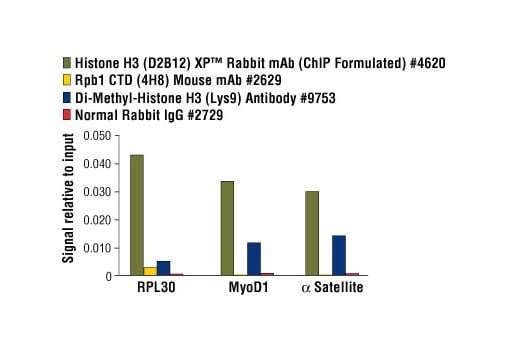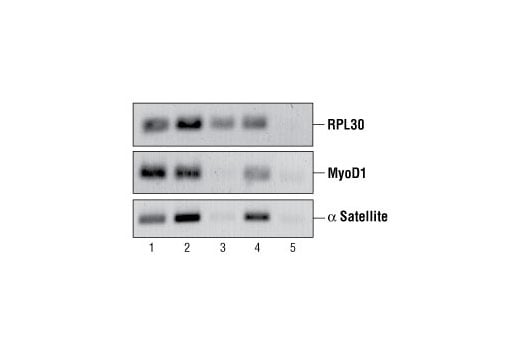 全部商品分类
全部商品分类



 下载产品说明书
下载产品说明书 下载COA
下载COA 下载SDS
下载SDS 用小程序,查商品更便捷
用小程序,查商品更便捷


 收藏
收藏
 对比
对比 咨询
咨询ChiP-Grade Protein G Agarose Beads are an affinity matrix for the small-scale isolation of immunocomplexes from chromatin immunoprecipitations (ChIP assays). A truncated form of recombinant Protein G is covalently coupled to agarose beads. Protein G exhibits high affinity for subclasses of IgG from many species (including human, rabbit, mouse, rat and sheep) and can be used for immunoprecipitation assays with these antibodies. The beads are stored in buffer containing BSA (500 µg/ml) and sonicated salmon sperm DNA (200 µg/ml) to block non-specific binding of proteins and DNA during isolation of immunocomplexes. These beads are not compatible with ChIP-seq because the sonicated salmon sperm DNA interferes with downstream sequencing.

Product Usage Information
Vortex tube briefly to resuspend the beads. Add 30 µl of bead slurry to each chromatin immunoprecipitation (ChIP) reaction. For bead washing and subsequent elution of immunocomplexes, the beads can be separated from solution by a brief 1 minute centrifugation in a microcentrifuge at 6,000 rpm. Resuspend the beads in solution by gently vortexing or rocking the tube.These beads are specifically formulated for ChIP assays, if working with immunoprecipitation (IP) assays please see 37478

Specificity/Sensitivity
Species Reactivity:
All Species Expected



Supplied in 10 mM Tris-HCl (pH 7.5), 1 mM EDTA, 500 µg/ml BSA, 200 µg/ml sonicated salmon sperm DNA and 0.05% sodium azide. Store at 4°C.
参考图片
Chromatin immunoprecipitations were performed using digested chromatin from HeLa cells and the indicated antibodies. Purified DNA was analyzed by quantitative real-time PCR, using SimpleChIP® Human RPL30 Exon 3 Primers #7014, SimpleChIP® Human MyoD1 Exon 1 Primers #4490, and SimpleChIP® Human α Satellite Repeat Primers #4486. The relative abundance of each DNA sequence enriched by protein-specific immunoprecipitations is compared to the amount of the same DNA sequence enriched by the non-specific Normal Rabbit IgG #2729 (background).
Chromatin immunoprecipitations were performed using digested chromatin from HeLa cells and either Histone H3 (D2B12) XP® Rabbit mAb (ChIP Formulated) #4620 (lane 2), Rpb1 CTD (4H8) Mouse mAb #2629 (lane 3), Di-Methyl Histone H3 (Lys9) Antibody #9753 (lane 4), or Normal Rabbit IgG #2729 (lane 5). Purified DNA was analyzed by standard PCR methods using SimpleChIP® Human RPL30 Exon 3 Primers #7014, SimpleChIP® Human MyoD1 Exon 1 Primers #4490, and SimpleChIP® Human α Satellite Repeat Primers #4486. PCR products were observed for each primer set in the input sample (lane 1) and various protein-specific immunoprecipitations, but not in the immunoprecipitation using Normal Rabbit IgG #2729 (lane 5).




